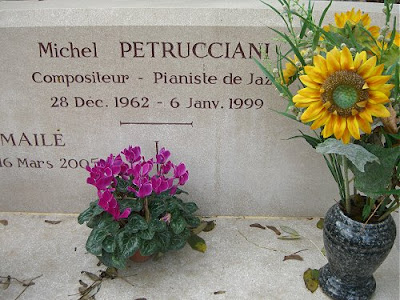Litany for G20

With the dawn of the seventies, John Cage was increasingly interested in - and vociferous about - social and environmental issues. He no longer confined his enthusiasm for technology to its practical application in music, but talked at length of his belief in the positive impact it could make on all areas of life. Cage spoke, too, of his engagement with political philosophy, particularly his own interpretation of anarchism ...
By the mid-seventies the progessively more qualified way Cage thought about social issues turned towards ecological matters. He gathered information about wildlife refuges, subscribed to the East-West Journal, and contacted the Franco-American anti-whaling organization, Project Jonah, copying from them a lengthy list of environmental organizations. In interviews he expressed concern about toxins in vegetables, and presently began to distill water at home and add seawater essence to restore its mineral balance. On tour he anticipated with pleasure visits to countries such as Scotland and Iceland, where the air was clean and the water fit to drink. Cage continued, however, to abjure active politics, feeling that the Green parties "have some very good ideas, but I'm very suspicous about power" ...
Litany for the Whale was completed in New York in July 1980, for two unaccompanied voices, singing as usual without vibrato. The piece consists of a recitation of the word "whale" sung with each letter pronounced separately (to D,C,B,G,A), alternating with responses made from different combinations of the letters. It suggests Cage's concerns with ecology ... the Litany comes unusually close to being a statement. ~ from The Roaring Silence, John Cage - A Life by David Revill.

Gee! - 20 links
1 - The Laboratory of Insurrectionary Imagination
2 - Fossil Fools Day
3 - Stop the War Coalition
4 - Climate Camp
5 - Rising Tide
6 - Put People First
7 - G20 Meltdown
8 - CND
9 - International Tibet Support Network
10 - Financial Fools Day
11 - Oxfam
12 - Earth Hour
13 - Alternative G20 Summit
14 - New Internationalist
15 - Progressio
16 - Concern
17 - Fairtrade Foundation
18 - Church Times
19 - White Band Action
20 - Bretton Woods Project

Image above is The Laboratory of Insurrectionary Imagination's first experiment which took place during the European Social Forum (ESF), held in London in October 2004. On An Overgrown Path does not condone violence and has no connection with any organisation mentioned on this page. The sole purpose of this article is to remind readers that there is something happening in London this week that affects us all. If you are not familiar with John Cage's Litany for the Whale I do recommend it. It is not at all scary, and proves, again, that classical music can help change the world. But why aren't more people marching in the streets?
Any copyrighted material on these pages is included as "fair use", for the purpose of study, review or critical analysis only, and will be removed at the request of copyright owner(s). Report errors to - overgrownpath at hotmail dot co dot uk






Comments